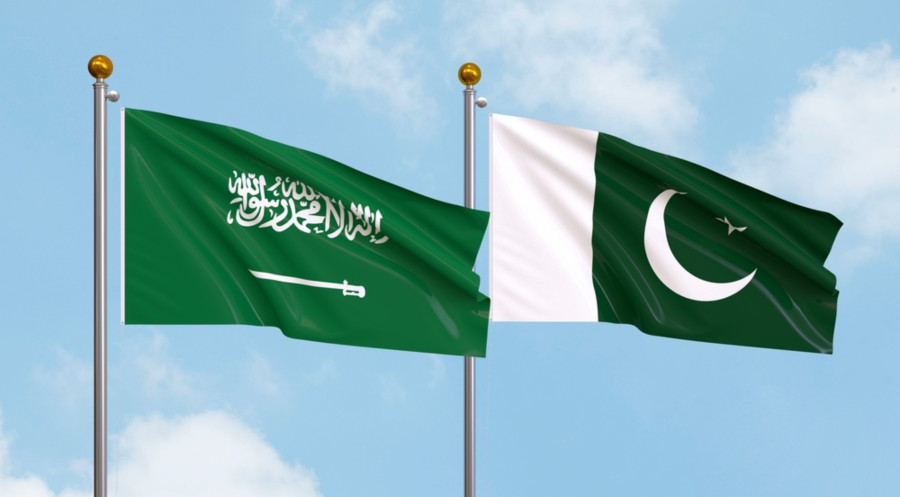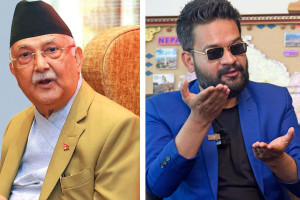Columns
On Pak-Saudi mutual defence agreement
Neither Pakistan nor Saudi Arabia would like to be embroiled in each other’s regional conflicts.
Smruti S Pattanaik
On September 17, Pakistan signed a “Strategic Mutual Defence Agreement” (SMDA) with Saudi Arabia. The agreement is a geo-strategic move, and after signing it, Islamabad has projected this as a major achievement in its brotherly relationship with Riyadh. Both countries have their own strategic interest, but it will bring economic dividends to the cash-strapped economy of Pakistan. Saudi Arabia has provided concessional financial aid and oil with deferred payment. While Pakistan is noncommittal about this agreement, another regional development where the Taliban foreign minister is scheduled to visit Delhi will cast a shadow on Islamabad, projecting the agreement with Saudi Arabia and its relationship with the United States as a big diplomatic victory.
Pakistan has been emphasising the clause that reads “any aggression against either country shall be considered an act of aggression against both” to impress that Saudi Arabia would be on Pakistan’s side when it faces aggression. Pakistan’s Defence Minister Khawaja Asif’s suggestion that Pakistan will provide a nuclear umbrella to Saudi Arabia has been retracted. However, some have termed this agreement as Pakistan’s return to the Middle East as a ‘net security provider’. Details of this agreement are not yet known. Nevertheless, it provides Pakistan an opportunity to project power after the US recognised Pakistan’s relevance to its geostrategic goals in Iran, Afghanistan and the broader Middle East region.
Economics of the relationship
After the signing of the agreement, the economic component of the bilateral relationship is in the process of being operationalised. Pakistan has constituted an 18-member committee to negotiate the terms of economic engagement with Saudi Arabia. The committee will be co-chaired by Climate Change Minister Musadik Malik and the national coordinator for the Special Investment Facilitation Council (SIFC), Lieutenant General Sarfraz Ahmad.
Saudi Arabia is a major destination for Pakistani workers employed in the construction industry and service sectors. According to the Bureau of Emigration & Overseas Employment, between 2020 and 2024, Pakistan sent 1.88 million workers to Saudi Arabia, up by 21 percent from 1.56 million in 2015–2019. Remittances have risen from $7.39 billion in 2020 to $8.59 billion in 2024. Remittance continues to contribute significantly to Pakistan’s economy. Not surprisingly, Pakistan has taken steps to enhance the skills of Pakistani workers to make them employable. Prince Mansour bin Mohammad Al Saud, the chairman of the Saudi-Pakistan Joint Business Council, is already in Islamabad to discuss trade and investment.
Saudi Arabia has always helped Pakistan financially, except in 2020 when Riyadh asked Pakistan to prematurely repay its $3 billion loan due to Pakistan’s criticism of Saudi Arabia on the Kashmir issue. In 2021, it agreed to provide $3 billion deposit and $1.2 billion and $1.5 billion worth of oil supplies on deferred payments after then-Prime Minister Imran Khan visited Saudi Arabia. In March this year, Pakistan signed an agreement with the Saudi Fund for Development to defer $1.2 billion payment towards oil import by a year. It also agreed to supply oil worth $100 million per month on deferred payment for a year.
Substance of political and defence cooperation
Pakistan’s relation with Saudi Arabia is based on Islamic solidarity, generous Saudi economic aid and the Pakistani armed forces’ service is required by the Saudis for the protection of the Saudi Royal family as well as protection of holy shrines in Mecca and Madina. Saudi Arabia is also a preferred destination for Pakistani politicians as well as military rulers. For example, Nawaz Sharif took political refuge in Saudi Arabia, and, in fact, Saudi Arabia played an important role in his return to Pakistan and entering active politics once again. General Musharraf was also offered political asylum in Saudi Arabia after he was ousted from power and was facing trial in Pakistan.
This defence cooperation agreement needs to be looked at both in the historical perspective as well as the present context. Pakistan has a defence cooperation agreement with Saudi Arabia, signed in 1967. In 1982, both countries formalised their cooperation and signed a bilateral security cooperation agreement, which enabled Pakistan to deploy its defence forces, estimated at around 1600 troops, and also provided training. Since 1967, Pakistan has trained 8,200 Saudi armed forces personnel as part of its training programme. In 2018, it agreed to deploy an additional 1,000 soldiers in internal security duty in Saudi Arabia.
Therefore, the new agreement is a continuation of the defence cooperation that exists between the two countries. Notably, despite excellent relations, Pakistan had rejected Saudi request to be part of the coalition force against Yemen and rejected Riyadh’s request for troops, ships and warplanes.
Reality check
The current context, especially the turmoil in the Middle East, the assertion of Israel demonstrated through its attack on Iran and the UAE, has induced uncertainty in the region. While many see this as additional insurance for Saudi Arabia, for Pakistan, it cements its ties with Riyadh further. Moreover, in the past decade, India has strengthened its ties with Riyadh both politically and economically. Pakistan felt betrayed as Saudi Arabia did not allow the raising of the Kashmir issue at the OIC or even to be raised at the OIC’s Council of Foreign Ministers meeting. It is not likely that Riyadh will dilute its relations with New Delhi.
In international relations, it is difficult to say whether a country is willing to fight another country’s war. Neither Pakistan nor Saudi Arabia would like to be embroiled in each other’s regional conflicts. How this agreement will come into play if one country faces aggression and what action is considered an act of aggression, remains to be seen. Moreover, it is not clear what exactly is meant by ‘aggression’. Is it an all-out war where aggression is well defined, or is it a threat where non-state actors are involved, as was the case in Yemen against Iranian-supported Houthis or Pakistan’s state-sponsored cross-border terrorism in Kashmir? This blurring concept of aggression will be a decisive factor in operationalising the mutuality of the SMDA.




 10.12°C Kathmandu
10.12°C Kathmandu















